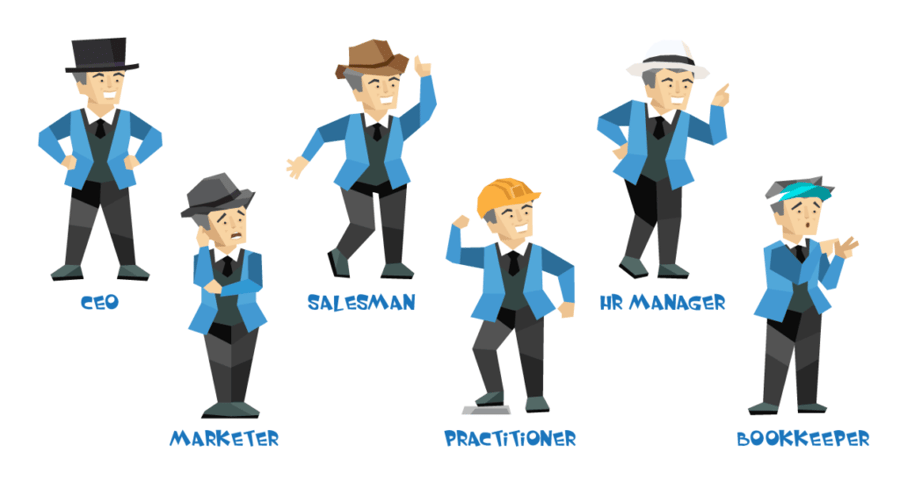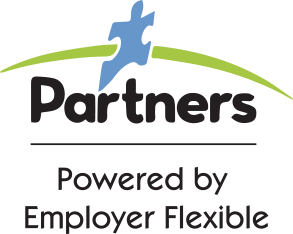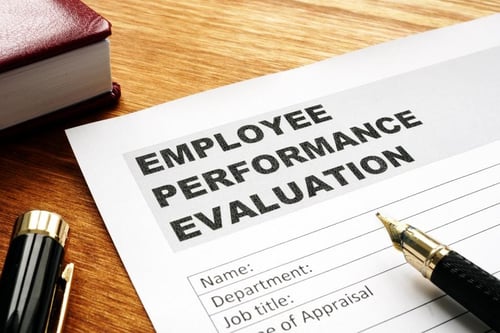HR: One of the Many Hats Small Business Owners Must Wear

It’s no secret that small business owners must wear many hats from CEO to sales to marketing to HR and all the way down the line to being the warehouse and logistics honcho who knows where the extra toilet paper is stashed.
Sartorial success, however, is often hard to pull off with not every hat a comfortable fit – Texans understand this every time they get a glimpse of any “dollar store cowboy” in an oversized 10-gallon hat.
“It’s a reality that we all deal with as we work to grow our businesses. We have to perform several different functions as effectively as possible. One day you might be working on your marketing plan. The next day, you might be negotiating with vendors. After that, you might find yourself being your own accountant,” Jeff Charles shared in Startup Advice.
It can all seem a bit overwhelming for the small business owner who must take solace is author E.B. White’s directive to “Hang on to your hat. Hang on to your hope. And wind the clock, for tomorrow is another day.”
Of course, in 2022 White’s advice would translate to “And charge your smartphone, for tomorrow is another day.”
Hang Onto Your HR Hat: Half of Small Businesses Keep it In-House
The Grasshopper Academy’s advice to small business owners is to hang onto that HR hat because it’s a role that can make or break your enterprise.
“As the founder or business owner, sometimes it's also your responsibility to take on the role of human resources manager. A well-structured human resources process is crucial to attracting and retaining good employees,” says the Grasshopper Academy.
Unfortunately, many small business owners opt to handle HR in-house by delegating it to unproven talent.
“Like most small business owners, you’re used to handling all business activities yourself. This includes all HR tasks. In fact, 54 percent of small businesses handle HR in-house. But owners usually give HR work to staff with little practice managing employees,” writes Dahna M. Chandler for The Hartford.
Minding Important HR Tasks Can Ensure Smooth Sailing
Susan Post, East Divisional Director for the Society of Human Resource Management, says that “there are a number of important HR tasks to ensure smooth sailing.”
Prioritizing HR not only makes good business sense, but many HR chores such as employee paperwork and workplace posters and issues such as workers compensation and social security are the law and must be addressed.
That is why so many small businesses recruit skilled HR talent or reach out to professional employer organizations (PEOs) such as Employer Flexible to get expert HR advice.
“HR personnel are experts in handling HR issues, including employee relations and motivation. Your own HR team not only helps you follow employment law; it ensures the health and safety of your staff,” says The Hartford. “Your HR team can develop policies that lead to employee well-being and engagement, too. The employee satisfaction that HR managers help you create is vital for small business success.”
8 HR Must-Haves for Your Business to Succeed
When you are putting on your HR hat, here are the eight areas you need to focus on, according to Post:
- Employee Paperwork: Grasshopper Academy says there are three areas of employee paperwork that must be collected, regardless of the size of your business:
-
- All U.S. employers must properly complete Form I-9 (Employment Eligibility Verification) for everyone they hire for employment in the United States. This includes citizens and noncitizens.
- Employee General File: This file should include a resume, payroll information, and W-4s.
- Employee Medical File: Medical exam and disability information should be included.
- All U.S. employers must properly complete Form I-9 (Employment Eligibility Verification) for everyone they hire for employment in the United States. This includes citizens and noncitizens.
“Be sure to create and maintain three separate personnel files for each employee (I-9, medical file, general employment file). Well-organized files that include the correct documentation are critical, and must be locked in a confidential, secure location,” reminds Post.
- Employee Handbook: The Society for Human Resource Management (SHRM) says that “the topics included in the employee handbook should cover the employer's mission statement, equal employment opportunity statement, contractual disclaimer and at-will employment statement (where allowed), the purpose of the employee handbook, and background information on the company.”
Post says that an employee handbook should outline expectations for employees and describe organizational policies around employment, maternity/paternity leave, benefits, termination, and more. Employer obligations and employee rights should be spelled out and other information to include as well:
-
- Standards of behavior & conduct
- Anti-discrimination policies
- Compensation and benefits
- Non-disclosure agreements
- Required Posters: For most business owners, compliance violations are more painful than the sound of a dentist’s drill, so it is key to understand which U.S. Department of Labor (DOL) required posters on job safety, wage requirements, and other employment policies need to be posted at your workplace.
Small business owners can seek help from the elaws (Employment Laws Assistance for Workers and Small Businesses) Advisor, which are a set of interactive, online tools developed by the DOL to help employers and employees learn more about their rights and responsibilities under numerous Federal employment laws. - Hiring Process: Hiring (and retaining) the right employees is one of the cornerstones of HR. Grasshopper advises “develop an effective hiring process that starts with a clear, well-written job description, utilizes a consistent interview process, and ends with thorough reference/background checks.”
Post says: “Take the time to hire the candidate who best meets the job requirements and is also a good fit with the company culture - it may take longer to fill the position, but will be worth it in the long run.”
HR professionals can take your hiring process to the next level by utilizing talent assessments or “screening in” candidates vs. “screening out.” - Performance Reviews: According to Grasshopper, “when done properly, performance reviews are a great way to help employees develop their careers. In a startup or small business setting, taking the time to help your employees grow will keep them engaged and most importantly, loyal to your business.”
If done right, performance reviews can be a win-win for employers and employees.
Jesse Sumrak in foundr magazine says, “constructive feedback can be a game-changer for your business and your workers’ lives. Say the right thing at the right moment, and you might just send your colleague into a career-altering upward spiral, and there’s a good chance they’ll take your business results with it.”
- Employee Development & Training: Engagement is important to a small businesses success and investing in employee development and training can lead to engagement. Training and upskilling employees can lead to greater productivity and make employees better candidates to fill open positions with in-house moves.
- Employee Recognition: Post says that a small business should “never underestimate the value of employee recognition. Although you may not have a large budget to recognize employee efforts, there are many creative ways to recognize those who go "above and beyond" without breaking the bank. Keep in mind that recognition means different things to different people, so avoid a one-size-fits-all approach and tailor as much as you can to each individual.”
- Employee Benefits: A 2019 AFLAC study showed that there is a strong connection between benefits and happy workers, with more than 8 in 10 (83 percent) employers that offer benefits agreeing that their company’s benefits offerings increase employee satisfaction. That same study found that many employees would accept a job with lower compensation but a more robust benefits package.
Outsourcing your human resources (HR) management duties is a big commitment. With Partners HR, you’re never in it alone. No hidden costs, no promises we can’t keep — just the insight and reliable guidance you need to make managing human resources issues more effective.



